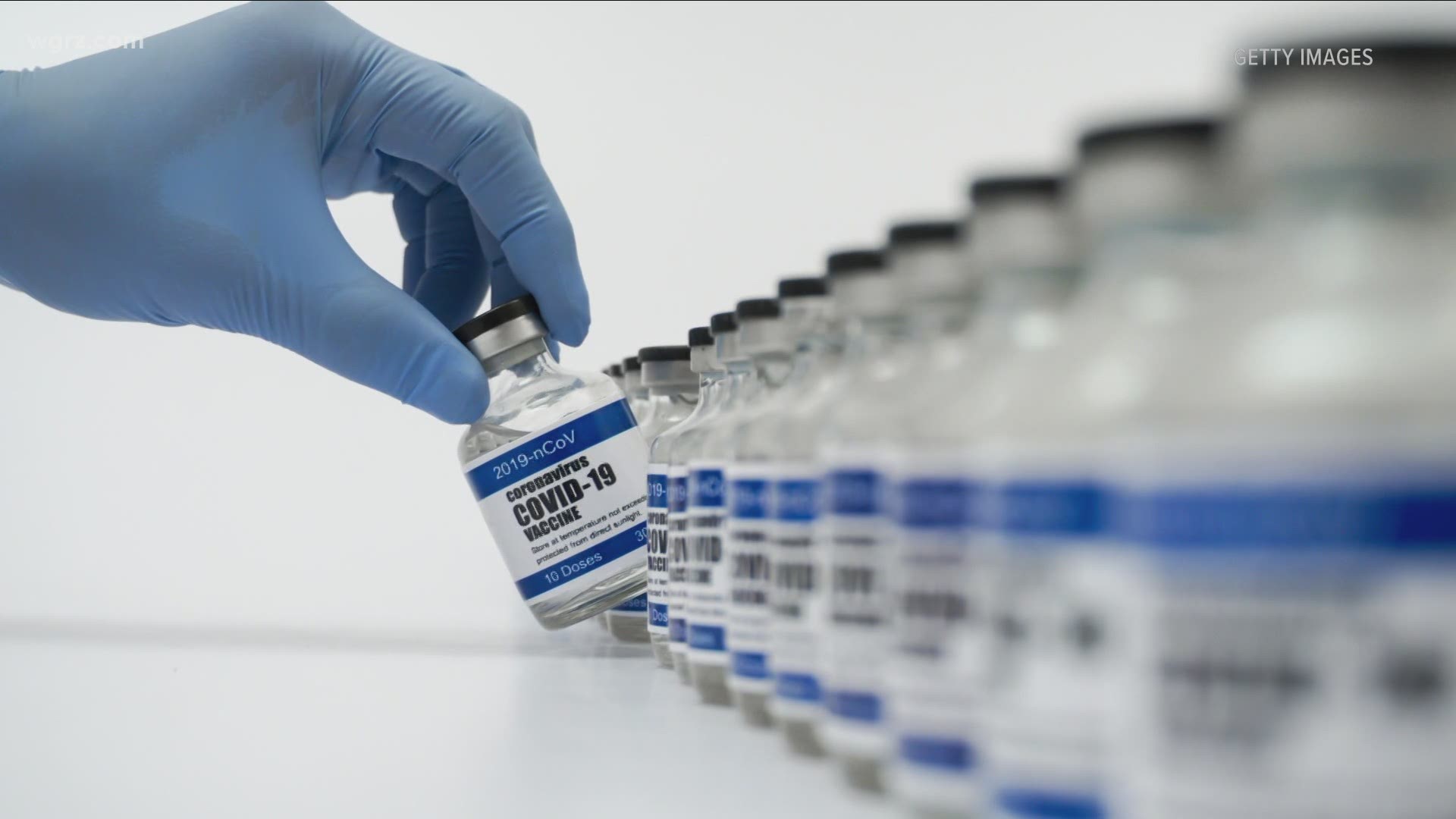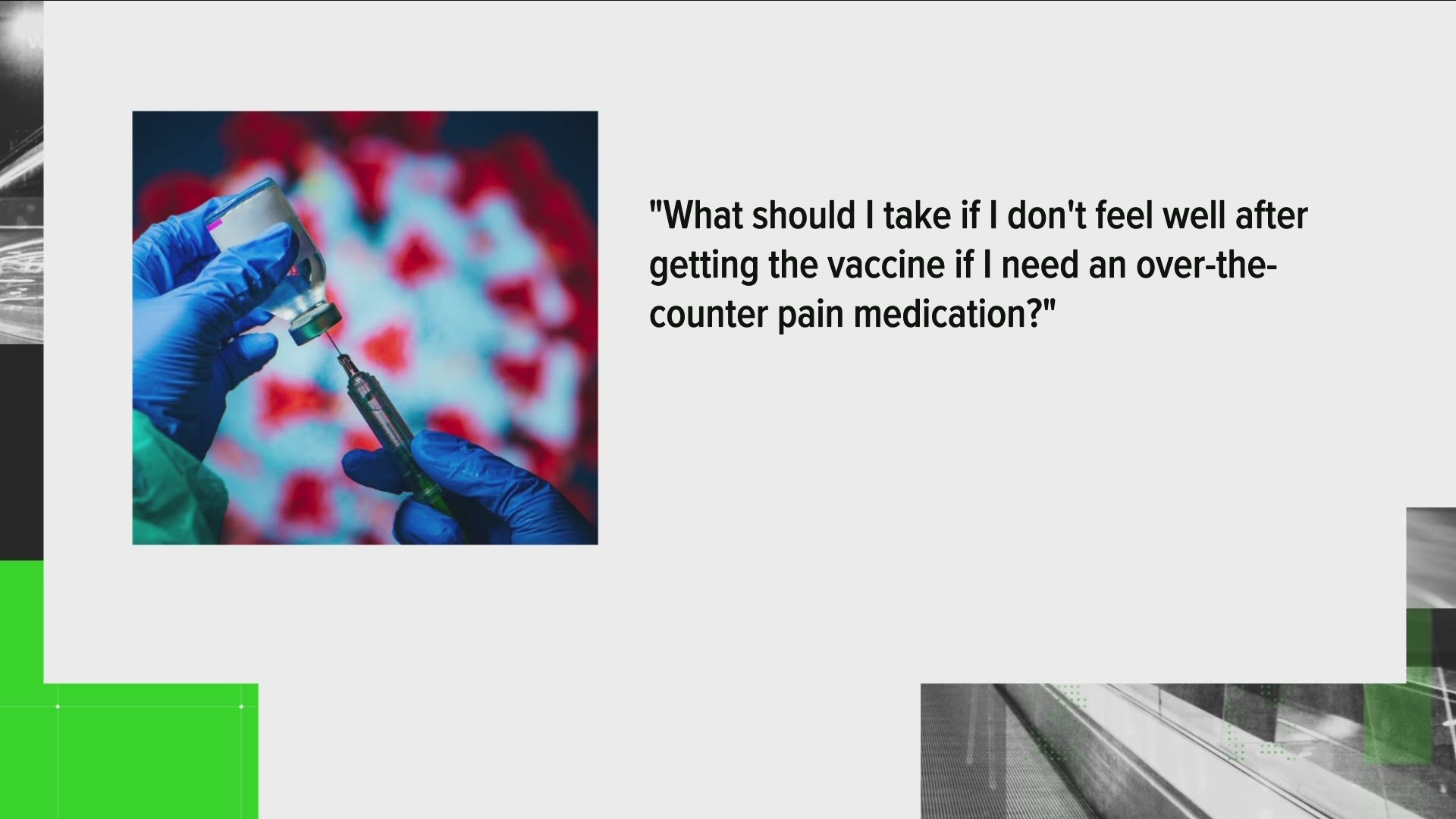BUFFALO, N.Y. — Come Monday, people with select underlying conditions will be eligible to get the COVID vaccine.
But with demand increasing and supply issues still a concern, getting an appointment may not be as easy as you would think.
According to the state website, individuals will need to show proof of their condition:
- a doctor's letter;
- or medical information evidencing comorbidity;
- or a signed certification.
The website also indicates that "the list is subject to change as additional scientific evidence is published and as New York State obtains and analyzes additional state-specific data."
At this point, it's still unclear if or how people with these conditions will be prioritized when it comes to getting an appointment.
Christine Schuyler, the Chautauqua County public health director, said Tuesday via email, "The vaccine supply is insufficient to vaccinate all of those eligible and assigned to local health departments. We need to decide how to sub-prioritize and look to the CDC’s recommendations for assistance.
"Our intent is to ensure equitable access to vaccination amongst people at highest risk for severe disease. It is my hope that vaccine allocations will increase and these folks will be integrated into our current point of dispensing clinics."
A spokesperson with the Erie County Department of Health told 2 On Your Side, "We are consulting with physicians and health care facilities to coordinate how the NYS-allocated-vaccine doses for individuals with comorbidities will be distributed. Once we have a plan formalized and finalized, we will announce it."
She added, "Any plans for individuals with comorbidities will not affect our [Points of Distribution Clinics] PODs this month. The NYS allocation for individuals with comorbidities are a separate allotment from the Phase 1B allocation that local health departments are currently charged with administering. In addition, we are still rescheduling appointments that were cancelled in January due to lack of supply, and providing second doses from our first dose PODs."
Dr. Thomas Russo, an infectious disease expert with the University at Buffalo, said certain comorbidities could potentially pose a greater risk for COVID-19 than others.
"I suspect over the next coming days, we'll receive some guidance that will identify individuals with comorbidities that are at highest risk for a bad outcome, and therefore push them up to the front of the list to get vaccinated," Dr. Russo said.
2 On Your Side reached out to Gov. Andrew Cuomo's office and the New York State Department of Health to ask:
Is it possible that the state will be releasing guidance on sub-prioritizing the comorbidities list?
If not, does the state expect the Centers for Disease Control and Prevention to issue further guidance about this?
A spokesperson answered neither question but referred us back to a release from Monday.
On Tuesday, Erie County Executive Mark Poloncarz said in a COVID-19 briefing, "If you have a concern and you want to get the vaccine, you need to understand that there's hundreds and thousands of other people who qualify now and will qualify as a result of the comorbidity category, and it's just going to take time."
Adults with the following conditions will be eligible for the vaccine in New York State beginning Monday:
- Cancer (current or in remission, including 9/11-related cancers)
- Chronic kidney disease
- Pulmonary Disease, including but not limited to, COPD (chronic obstructive pulmonary disease), asthma (moderate-to-severe), pulmonary fibrosis, cystic fibrosis, and 9/11 related pulmonary diseases
- Intellectual and Developmental Disabilities including Down Syndrome
- Heart conditions, including but not limited to heart failure, coronary artery disease, cardiomyopathies, or hypertension (high blood pressure)
- Immunocompromised state (weakened immune system) including but not limited to solid organ transplant or from blood or bone marrow transplant, immune deficiencies, HIV, use of corticosteroids, use of other immune weakening medicines, or other causes
- Severe Obesity (BMI 40 kg/m2), Obesity (body mass index [BMI] of 30 kg/m2 or higher but < 40 kg/m2)
- Pregnancy
- Sickle cell disease or Thalassemia
- Type 1 or 2 diabetes mellitus
- Cerebrovascular disease (affects blood vessels and blood supply to the brain)
- Neurologic conditions including but not limited to Alzheimer's Disease or dementia
- Liver disease



